FRASER VALLEY
Well Pump Services
Water Well Pump & Pump Repairs
Abbotsford, Chilliwack, Yarrow, Sardis, Clearbrook, Harrison Lake, Hope, Langley, Fort Langley, Surrey, Vancouver,
Aldergrove, Cloverdale, Pitt Meadows, Maple Ridge, Albion, Whonnock, Ruskin, Mission, Dewdney.
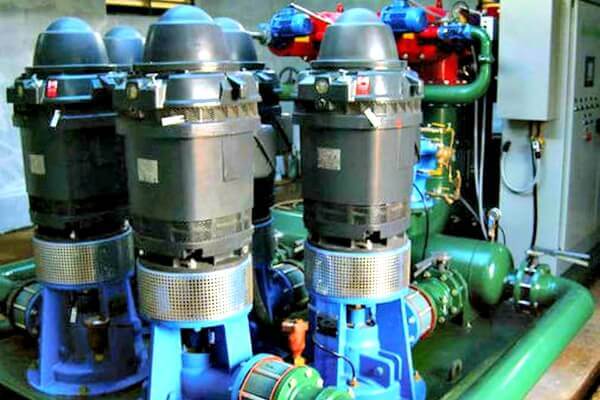
FRASER VALLEY
Well Pump Estimates
Fraser Valley Well Pump Service Area:
Vancouver, Chilliwack, Sardis, Yarrow, Abbotsford, Clearbrook, Mission, Surrey, Langley, Burnaby, Coquitlam, Port Coquitlam, Maple Ridge, Pitt Meadows, Whonnock, Ladner, Tsawwassen
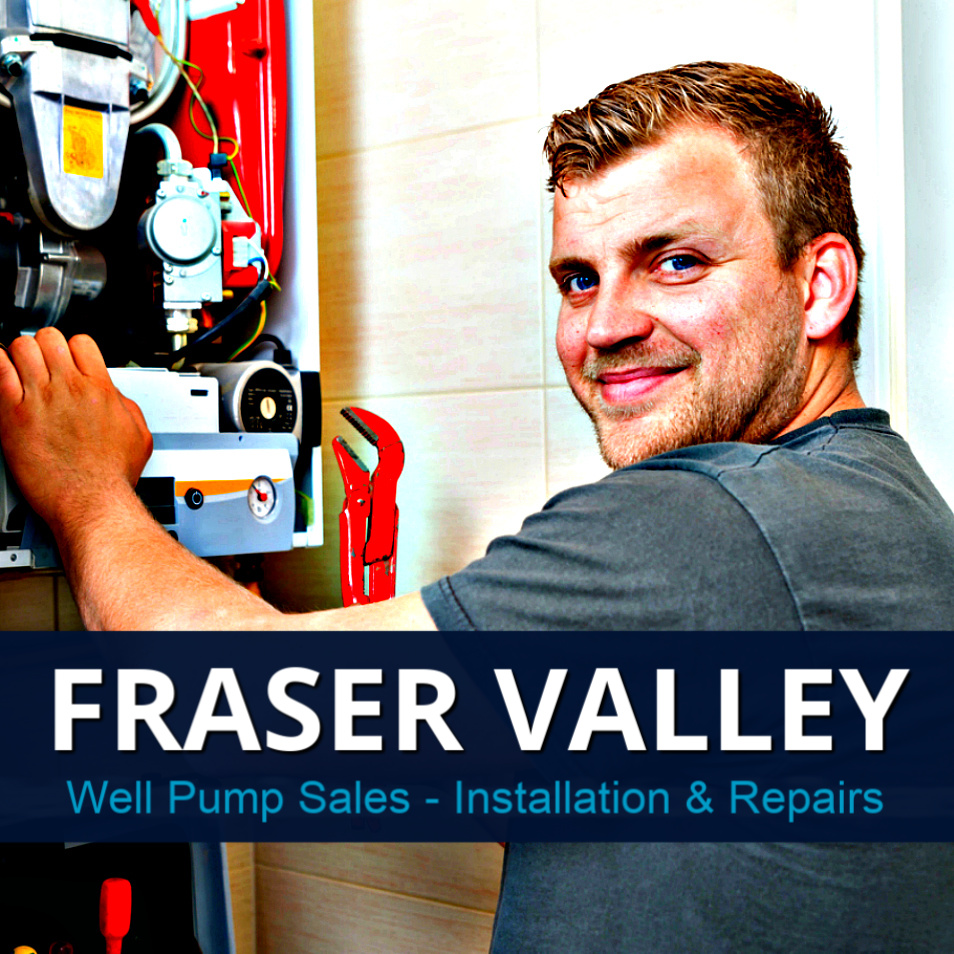
Fraser Valley Well Pump Services
Fraser Valley Well Pump offers a full-scope of quality water well pump services throughout the Fraser Valley and much of the Lower Mainland of British Columbia.
Fraser Valley Well Pump has fully stocked service vehicles along with certified water well pump experts and well pump repair department.
We provide provide dependable service for emergency well pump repairs, if you’re experiencing local pump problems or if your water has suddenly stopped you may require a well pump repair, we respond to water pumping emergencies as quickly.
Request a FREE online estimate for well pump repairs, new well pump installations or other water well services for residential, commercial or agriculture requirements.
For FAST well pump service call us today at 778-860-4220
Well Pump Repair & Well Pump Cost
The cost of replacing a well pump in the Fraser Valley are based on several things, the first would be the type of water well pump, the depths that the well pump is installed, the sizing of well pump is also based on the information about your water well in the Fraser Valley such as location, depth and yield which may be obtained from your well report if one is available.
Replacing a shallow well jet pump is generally less costly than replacing a submersible well pump for either residential or irrigation purposes. Replacing a malfunctioning pump is important, especially if your water well is your primary source of water.
Cost to Replace a Well Pump - Fraser Valley
The average cost to replace a well pump in the Fraser Valley could be $800.00 to $2,300 or much more. Shallow well pump costs around $1,000 or more to install, while new deep well pump installations might cost roughly $2,000 or more depending on the depth and many other factors. Most water well pumps retail for between $600.00 and $2500.00 or more in the Fraser Valley area.
Request a QUICK online well pump estimate for your Fraser Valley water well.
Fraser Valley Well Pump Service Area
Local Well Pump Repairs Near You:
Abbotsford, Chilliwack, Yarrow, Sardis, Clearbrook, Harrison Lake, Hope, Langley, Fort Langley, Surrey, Vancouver,
Aldergrove, Cloverdale, Pitt Meadows, Maple Ridge, Albion, Whonnock, Ruskin, Mission, Dewdney.
Water Well FAQ
A: In contrast to popular belief, an aquifer is not a free-flowing underground river or lake. Actually, an aquifer is a body of rock or sediment that is totally saturated– water is within it and all around it. It can be made of sand, gravel, sandstone, or other rocks that has the ability to store and transmit water. What gets into an aquifer remains within an aquifer.
The water within an aquifer typically begins as rain or snow melt that permeates into the ground. The quantity of water that makes its way to the aquifer varies extensively from from one area to another depending on the type of surface and underlying soils. Once underground water will continue to be drawn downward until it reaches an impermeable layer of rock. The movement of water through small pores and the spaces between rocks functions as a natural filtering system, cleansing the water and removing sediment. Sooner or later water will eventually leave the aquifer and need to be replenished through a natural process called “recharge”.
Water that flows into an aquifer may be contaminated by many things we do at or near the surface of the earth, often referred to as land use. Contaminants, not removed by the natural filtering process, may reach the aquifer through natural or man-made pathway. Intentional disposal of waste such as landfills, septic tanks, and injection wells can certainly impact the quality of an aquifer.
A: What is the well drilling cost within the within the Fraser Valley? If drilling a well in a Fraser Valley community including Abbotsford, Chilliwack, Yarrow, Sardis, Clearbrook, Harrison Lake, Hope, Langley, Fort Langley, Surrey, Vancouver, Aldergrove, Cloverdale, Pitt Meadows, Maple Ridge, Albion, Whonnock, Ruskin, Mission, Dewdney this information will answer the most frequently asked questions.
Local Water Well Pros are expert well driller servicing the Lower Mainland with a highly skilled crew, successfully completing many drilled water wells and environmental projects though out BC every year.
Request the cost to drill a well in the Fraser Valley online, a prior visit to your drilling site is not required. We have plenty of data for the cost to drill a new well in all areas of the Fraser Valley, we have the ability to quickly provide well drilling estimates online.
To receive the well drilling cost for your area online we require some basic information about the property when submitting your request on the estimator form at the top of this page, we normally respond with a complete drilling estimate on the same day.
The cost to drill a new well will depend on numerous factors. The cost per foot to drill a well will greatly depend on the depth & diameter of the steel water well casing. 6″ diameter water wells are standard for most domestic water wells in British Columbia and most of Canada.
The cost to drill a well in the Fraser Valley is typically $48.00 to $55.00 per ft. for a 6″ diameter cased well, the price includes the cost of casing and drilling combined. When drilling for water in bedrock, well casing will typically not be used reducing the well drilling cost to an average of $35.00 per ft.
There are other costs when drilling a well such as a required a surface seal in British Columbia that will cost $800.00 on average, a drive-shoe at $250.00 and maybe a stainless steel well screen costing 1250.00 per 4′ section installed, more than one well screen could be required in a few situations. There may also be the need for water well development that may be charged out at approximately $250.00 per hour.
We normally recommend that well liners be installed preventing a new drilled well from collapsing at a cost of $12.00 to $15.00 per per foot. A well liner is priceless protection for a water well, a major collapse is not required to do significant and costly damage The above mentioned costs are an accurate well drilling cost guideline when drilling for water British Columbia and the Fraser Valley. Estimates may fluctuate from one area to another.
Are these all the expected costs when drilling a well in British Columbia you may ask? No, maybe not. If your local well driller expects to possibly encounter flowing artesian conditions might expect additional well drilling costs that can substantially add to the final cost of drilling a well in the Fraser Valley and many other areas of BC including Vancouver Island and well drilling in Kamloops.
When preparing to drill a well in the Fraser Valley it’s important to obtain a detailed well drilling cost estimate for your area specifically but remember it’s what’s encountered when drilling for water will finally determine the actual cost of drilling a water well in the Fraser Valley and all other areas of British Columbia. Each property should be carefully researched prior to writing an well drilling cost estimate, the well drilling industry does have access to significant data for the most of British Columbia.
It would not be unusual for a drilled water well in the Fraser Valley to be completed at less than 100′ – almost without exception well drillers in Fraser Valley will have a minimum well drilling charge of 100′.
Once a new well is drilled in the installation of a well pump system will be required, it difficult to give the estimated cost of a new well pump system, once the well is drilled and the well depth, yield, and trenching distance etc. is known it becomes much easier to know the the cost of installing a new water well pumping system into a water well.
Water well drilling may be costly but can be a good investment often increasing the value of a property by drilling a quality producing water well to service the property.
When preparing to drill for water almost everyone will ask, “what is the cost to drill a well?”, what most people do no understand is the cost to drill a water well might double or even triple quickly!
How could that happen you might ask? By drilling a dry well! How would most people ever know where to drill a new well on a property? Always keep in mind that well drillers are paid by the foot to drill a well and although we have some excellent well drillers in British Columbia, we find that what’s almost always lacking is expert guidance on where to drill a new water well.
Most people are reluctant to drill a well without knowing if they have a reasonable chance of locating water. Learn more about water site selection.
The Main Components of a Drilled Water Well Are:
- The Well Head – The head is generally made of steel pipe known as casing or plastic PVC. A well is capped to help keep the debris away from the well.
- The Well Casing – The casing system allows the water to flow from the aquifer and reach the pump which is located inside the casing.
- The Well Pump – A water well pump is required to pump the water from the well to the surface. Typically, electric submersible pumps are used.
While few water wells may flow at land surface under artesian pressure, most water wells will require some type of water pumping system to lift the water. Almost all the most common and best water well pumps are centrifugal in design, using spiral impellers to push or pull water up & out of the water well.
One of the most common of these water pumps are the above-ground centrifugal, this is where the pump motor and pump sit at or near the well. Centrifugal pumps are capable of pumping large quantities of water, but generally they cannot lift water from depths more than 25 ft.
Deeper water wells with with relatively low discharge requirements, such as domestic wells, often use submersible well pumps. There are many different submersible pumps and sizes, it’s important to install a water pumping system designed to work with the specs of the water well.
Submersible well pumps are attached directly above the motor and the entire submersible well pump is suspended near the bottom on the well. Wells with deep water levels used for large quantities of water often use turbine pumps. Turbine pumps have the motors sitting on top of the well with a long shaft turning the impellers deep below the surface.
The largest submersible well pump that can fit into a 6” diameter well is a 5 HP, 4” diameter well pump capable of pumping up to 100 GPM.
If more than 100 GPM is required for irrigation or commercial purposes, it’s recommended to increase the diameter of the to 8” or greater.
British Columbia Ministry of Environment Regulations – Water Well Set-back Regulations for the Fraser Valley
Fraser Valley Water Wells Should Not Be:
1) Within a horizontal distance of 3 m (10′) of an existing building.
2) Within a horizontal distance of 30 m (100′) of any probable source of contamination or point of waste discharge to the ground, such as a privy vault, cesspool, septic effluent field, manure heap, stable or pig sty; or
3) Within a horizontal distance of 120 m (400′) of any cemetery or dumping ground.
4) Drilled within 50′ of a neighboring well – dug or drilled
Many wells in the Fraser Valley are not deep, in fact many wells will be far less than 200′ deep.
If a water well is located near potential sources of contamination it is vulnerable and can become contaminated with the possibly of causing serious illness or even death.
British Columbia Water Well Regulations & Ministry of Environment set-backs for water wells in the Fraser Valley are required to protect water resources from becoming contaminated from a multitude of possible sources.
To understand comparable well drilling depths, it’s best to locate the BC Ministry of Environment set-backs and refer to your local resources including well drilling reports, resources are available at BC Water Well Search and Fraser Valley Municipal Bylaws.
Potential sources of water well contamination include waste discharge to the ground, such as privy vaults (also known as an outhouse or pit toilet), cesspool (“overflow” pits), underground storage tanks, septic tanks an effluent field, stable or pig sty, manure heap, fertilizers and pesticides, runoff from urban areas, even a cemetery or landfill sites.
A drilled water well in or any of the Fraser Valley communities should be located on higher ground when possible to protect the well head from normal or seasonal flooding and possible surface drainage.
Both shallow wells and deep water wells located anywhere in the Fraser Valley may also become seasonally vulnerable and should be located away from surface drainage ditches and other possible sources of contamination.
A: Modern drilled water wells in British Columbia should last for a long time with the current well drilling methods and water well construction materials.
A drilled well in theory could last up to 100-years in some areas although it would certainly not be common in the Fraser Valley area. There are numerous variables to consider, it’s important to evaluate a property and consider the importance or properly siting a new water well prior to drilling. Water well siting may help yield as much water a possible, if local aquifer conditions change a properly cited water well will hopefully still remain productive.
A: Not a lot is required to maintain a water well. The well water should be tested at least annually along with periodic water well disinfection & flushing as required to maintain a clean healthy well. Many well owners wisely conduct an annual maintenance inspection of the complete water system. Preventative maintenance can reduce water well expenses and equipment damage.
A: Groundwater has generally been the best choice for a stable, safer, and cleaner water source on most local properties. Local Water Well Pros is very familiar with the local aquifers throughout the Fraser Valley of British Columbia.
A: Consult with a local well drilling company with an extensive track record in the area. Hire a well driller who has been drilling water wells for a long time. Experience is very important as a good driller will be able to handle whatever might be encountered.
Local Water Well Pros makes sure all well drilling contractors have a safety program, liability insurance, and workers compensation coverage for all employees with a highly proven success rate of quality drill wells.
Prior to ever drilling, water well site selection is vital, many people are not aware that there is always risk of drilling a dry well in the Fraser Valley.
A: The areas under potential artesian pressure located within the Fraser Valley
An artesian aquifer is a layer of pressurized water captured between layers of underground rock.
When you drill a well into an aquifer, the pressure forces the water up and out to the ground surface where it continues to flow. A flowing artesian well can cause substantial damage and incur significant and unexpected costs.
Flowing Artesian Wells in the Fraser Valley
Flowing artesian wells occur when a water well is drilled into an aquifer that is under pressure, with pressure that is high enough to force the water level in the well to rise above the ground surface and flow over the top of the well.
When an artesian well is drilled the pressure is relieved and the water is able to find a path to open air, in many cases the pressure is high enough to bring the water all the way to the surface which is known as a flowing artesian well.
Artesian groundwater is the same as any other type of groundwater the difference is only how the water gets to the surface.
An artesian water well is basically a well that doesn’t require a well pump to bring water to the surface; this occurs naturally when there’s enough pressure in the aquifer. The pressure forces the water to the surface without any sort of assistance.
It is important to properly construct the well so that the flow can be controlled. Controlling an artesian flow conserves groundwater resources, preserves the pressure within the aquifer, and prevents damage to the natural environment (i.e., property damage, flooding, erosion and impacts to surface water).
A flowing artesian well can cause substantial damage and incur significant and unexpected costs if not properly planned and constructed. Well drillers and well owners should be prepared in advance in case flowing artesian conditions are encountered.
When drilling a well in the Fraser Valley with the potential of artesian conditions registered well drillers in British Columbia must be classified and have the qualifications as required to work on the particular class of well that they are working on such as water supply wells, geoexchange wells, and dewatering wells.
A: Local Water Well Pros drillers are educated and certified under the BC well drillers apprenticeship program must abide by or exceed the water well drilling regulations for British Columbia.
A: Local Water Well Pros provides a full range of water well services. Once the well has been drilled you many be anxious to get your well in service as quickly as possible. We advise and help our customers through each step of the well drilling process such as well pump installations, water tanks, water treatment & well water testing.
A: Turn off the well pump breaker at your breaker panel and call Local Water Well Pros as quickly as possible, we can either advise you over the telephone to resolve the issue or arranged to have a technician service your water system.
A: Rotary air drilling is just what it says. A large compressor to clean-out the borehole. This is the cleanest and preferred well drilling method used today in the Fraser Valley well drilling industry.
Air rotary is a drilling method used to for deep boreholes in rock formations.
Borehole advancement is achieved by rapid rotation of a drill bit which is mounted at the end of the drill pipe. The drill bit “cuts” the formation into very small bits, called cuttings.
BC ONE CALL
Call Before You Dig!
Whether you are drilling a well or preparing to dig on a property in the Fraser Valley – even in the remote areas… Call Before You Dig!
One call from the contractor or homeowner with a dig project starts a process that ends with knowing where any underground facilities are buried on the property.
BC ONE CALL: 1-800-474-6886
Local Water Well Services
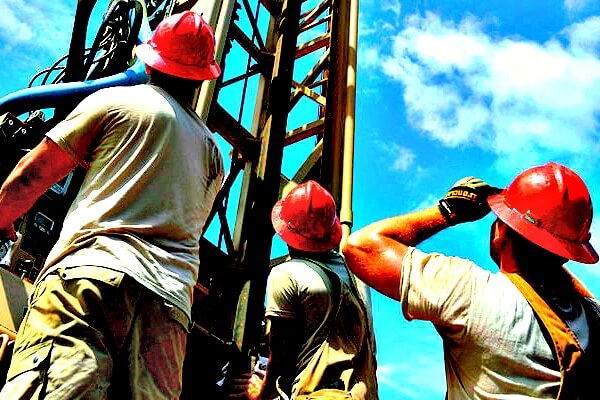
Well Drilling
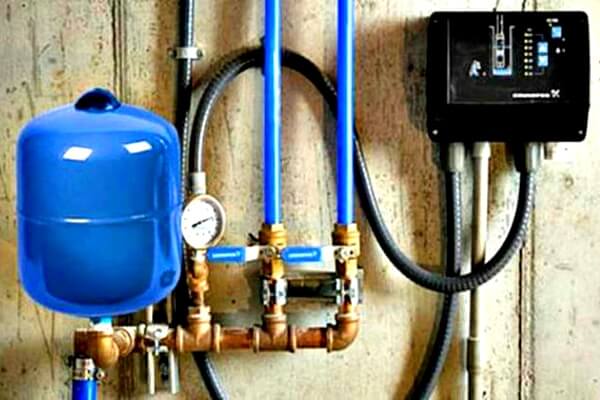
Well Pumps

Large Pumps
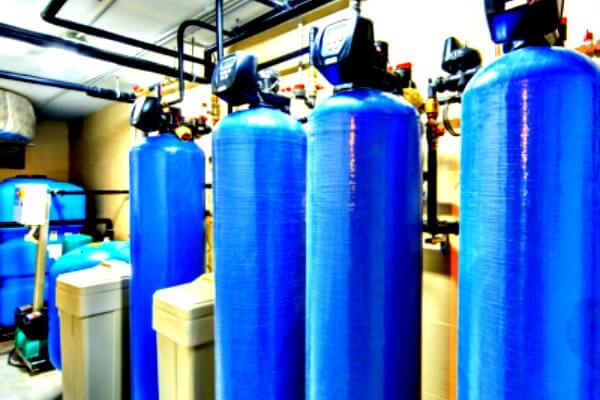
Water Treatment

Water Testing
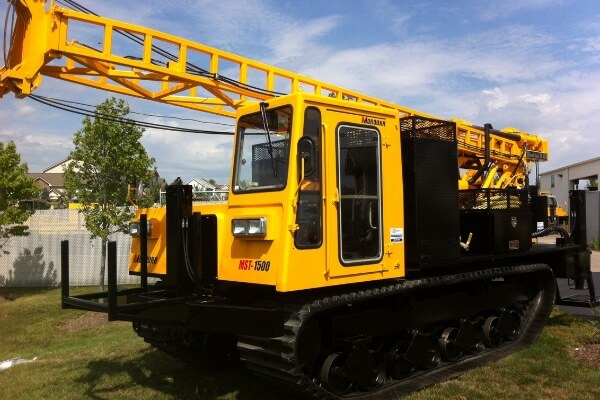
Geotech Services
Local Water Well Pros
Abbotsford, Chilliwack, Yarrow, Sardis, Clearbrook, Harrison Lake, Hope, Langley, Fort Langley, Surrey, Vancouver,
Aldergrove, Cloverdale, Pitt Meadows, Maple Ridge, Albion, Whonnock, Ruskin, Mission, Dewdney
